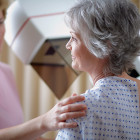Disparities
Prediabetes: The Silent Health Condition That Affects Thousands
|
Thousands of Connecticut residents are prediabetic but don’t know it and if they did, doctors say, early detection and lifestyle changes could prevent diabetes from developing in most people at risk. The state Department of Public Health reports that 83,000 adults in Connecticut have prediabetes, which occurs when a person’s blood sugar level is higher than normal but not high enough to be classified as Type 2 diabetes. Nearly 9 percent of adults in the state—about 257,000 people—have been diagnosed with Type 2 diabetes. Prediabetes has few early warning signs, but a blood test by a primary care doctor can detect at-risk patients. Once detected, changes in diet and exercise, sometimes with medication, can stave off the disease, doctors say.
